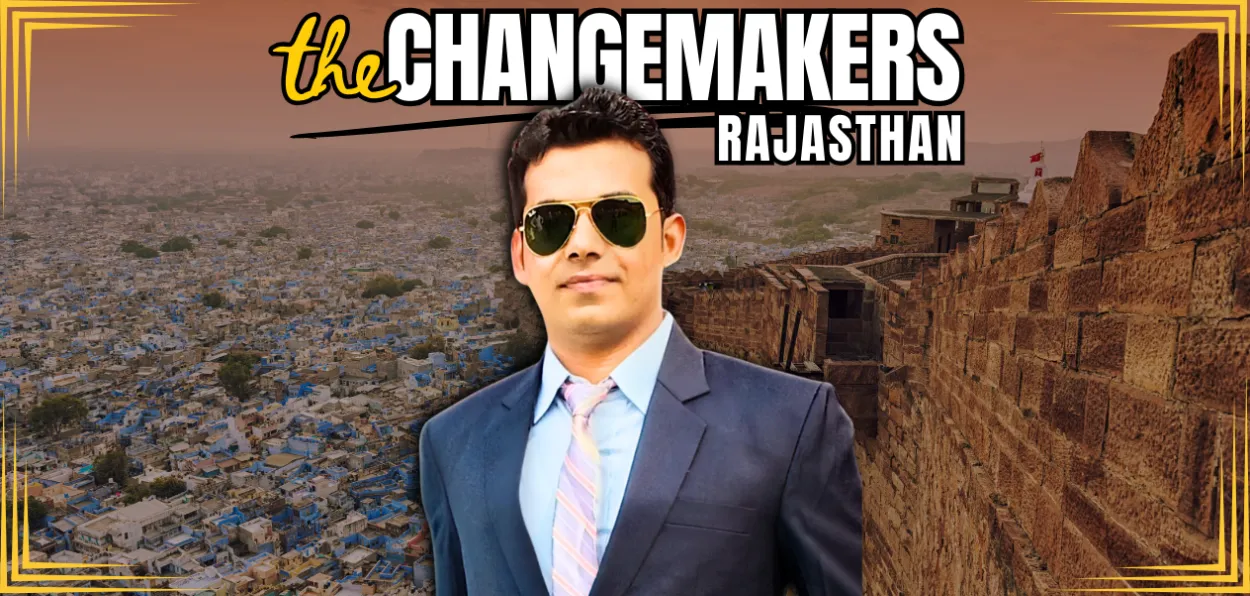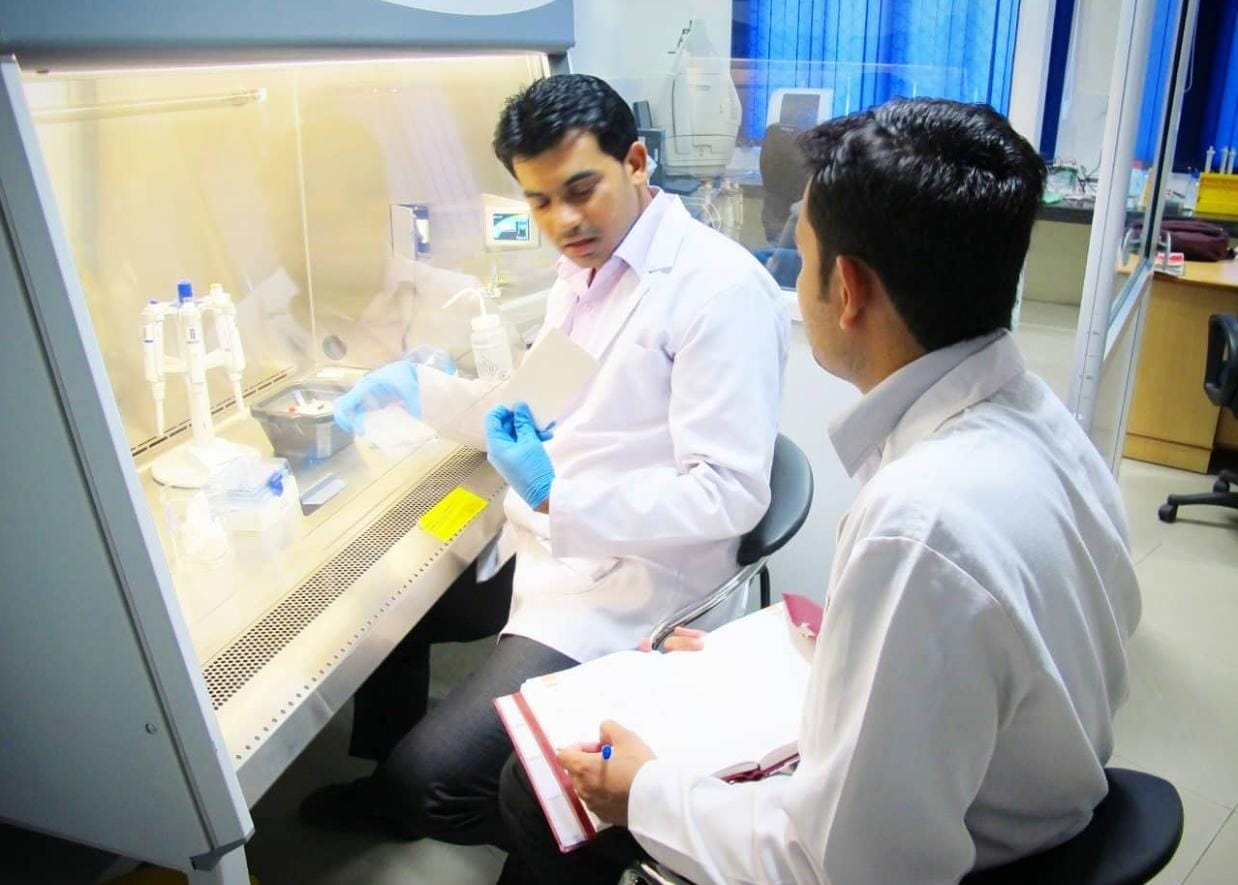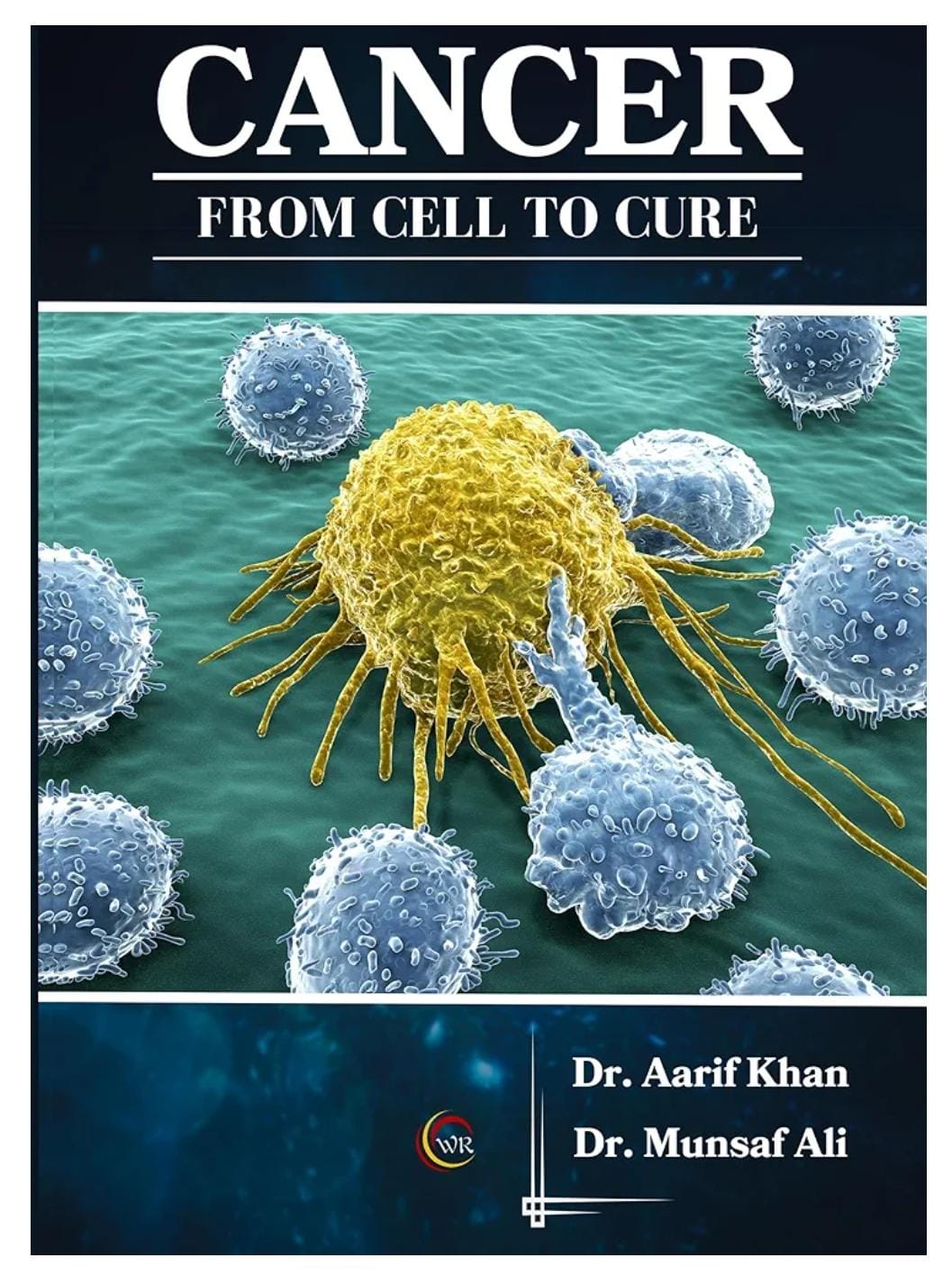
Farhan Israili/Jaipur
Arif Khan was born in Masani, a small village in Rajasthan’s Hanumangarh district, where people spent their days working in the fields and nights gazing at the stars.
From this humble beginning, he has risen to become a scientist whose journey inspires thousands of young people. His story proves that with determination, hard work, and the right guidance, even the most distant dreams can be achieved.
Today, Dr. Arif Khan is not only a scientist but also a changemaker. His research, inventions, and books are shaping new possibilities in healthcare and biology.
.jpeg)
“Research requires patience; out of 100 experiments, perhaps only five succeed — but those five can change the world,” he told Awaz-The Voice. With over 30 published research papers and two books, his career stands as testimony to persistence and innovation.
Born 34 years ago, Arif grew up in a family that valued education. His father, Advocate Farid Khan, dreamed of seeing him become a doctor, a dream shared by his late mother, Hajin Aamna Bibi, and grandfather Haji Yusuf Khan. Despite limited schools and opportunities in Masani, Arif’s passion for science only grew stronger.
His schooling began at Chaudhary Maniram Memorial Senior Secondary School in Hanumangarh, where he consistently ranked among the top students. Later, while studying at DAV School in Sri Ganganagar, he won the Excellence Student Award.
He went on to graduate in Biology from Maharaja Ganga Singh University, Bikaner, and completed an M.Sc. in Biotechnology from Swami Keshwanand Rajasthan Agricultural University. His brilliance helped him clear prestigious national exams such as NET and SET.
During his Ph.D. at the Post-Graduate Institute of Veterinary Education and Research, Jaipur, he began groundbreaking research on milk-borne pathogens. In Rajasthan, where many prefer unpasteurized milk, he discovered how harmful bacteria from sick animals could pass into milk and cause serious illnesses.
His research revealed two critical dangers: the genetic traits that made pathogens more virulent, and their growing resistance to antibiotics due to overuse in livestock. These findings carried profound implications for rural healthcare.

Arif Khan in the laboratory
The challenges of research in Rajasthan’s harsh climate further pushed him to innovate. Transporting milk samples to labs often took more than 24 hours, by which time they spoiled. To solve this, Dr. Arif invented the Portable Food Microbiology Analyzer — a device capable of testing milk on-site within two hours.
The innovation, later granted a patent, saved time, cut costs, and improved accuracy. True to his principles, he chose to transfer any potential revenue from the device to the Government of India, keeping his focus on improving lives.
Currently, Dr. Arif serves in the Ministry of Education, Kuraj (Ajmer), where he leads the Integrated Biology Laboratory and mentors young scholars. His work spans biotechnology, microbiology, and biochemistry. Never one to rest, he is now developing another life-saving device — the Antibiotic Sensitivity Analyzer.

Cover of Dr Arif Khan's book
Unlike current methods that take up to 48 hours, this machine can identify within 4–6 hours which antibiotic will work against a bacterial infection, potentially saving countless lives.
Behind his professional achievements lies a deeply personal motivation. In 2021, Dr. Arif lost his mother to cancer. In her memory, he authored Cancer: From Cell to Cure, a book exploring cancer biology, now available on Flipkart and Amazon. He has also written a practical guide for young researchers, continuing his mission to inspire students.
His contributions have been recognized with awards, including the Young Scientist Award from NIT Jaipur in 2018, and he is a member of the American Society for Microbiology.
Yet, Dr. Arif remains grounded. He acknowledges the mentors who shaped him — Dr. Govind Singh, Prof. Anand Bhalerao, Prof. Irshad Ali Khan, and Dr. L.K. Sharma — as well as the unwavering support of his brother, Advocate Imdad Khan. “At every step, there was someone who motivated me,” he recalls.
Remarkably, Arif had completed his Class 12 at the age of 15. He was underage to sit in the Medical college entrance examination.
.jpeg) The backcover of Dr Khan's book
The backcover of Dr Khan's book
What initially seemed a setback became a turning point. Encouraged by his grandfathers, he pursued research, eventually earning the title of “Dr.” and living up to the expectations of his family.
Reflecting on Rajasthan’s scientific environment, Dr. Arif points out that limited recruitment and facilities hinder research. Yet, his inventions show how local challenges can spark world-class solutions. He also advises young aspirants to look beyond medicine and consider fields like biotechnology, microbiology, and agricultural sciences — areas with immense opportunities and fewer competitors.
READ MORE: Ruby Khan and Mirza Mohtashim Baig: Couple who are changing lives
From a boy in a small village to a scientist whose innovations are saving lives, Dr. Arif Khan’s journey is proof that perseverance, guided by purpose, can light the way forward for generations.
